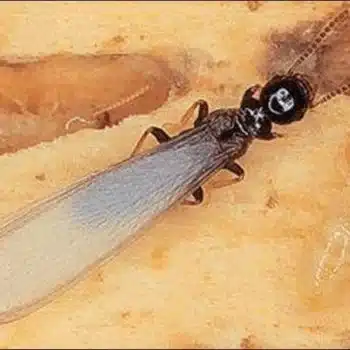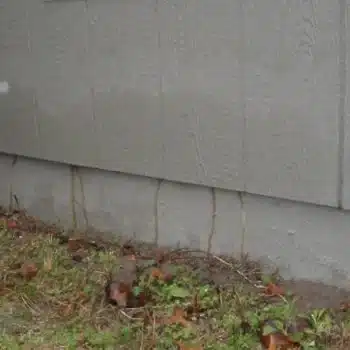When you think about summer in Miami, you probably imagine swaying palm trees, afternoon thunderstorms, and long, sun-soaked days. But while you’re enjoying everything South Florida has to offer, there’s something else stirring in the shadows—and it’s not going on vacation. Termite activity in Miami doesn’t just persist during summetime—it thrives.
Thanks to a warm, humid climate and a variety of invasive and native termite species, Miami remains one of the most termite-active regions in the country. If you’re a homeowner in Miami or the surrounding areas, it’s critical to stay vigilant—especially this time of year.
Here’s why this time of summer may be one of the most important times to monitor, prevent, and treat for termite infestations in Miami.
Florida’s Year-Round Termite Season
Unlike other regions where termite activity slows in cooler months, Florida’s subtropical to tropical climate allows termites to stay active all year long. In Miami, high humidity and consistent heat create the perfect breeding ground for multiple termite species.
While many subterranean termites swarm in spring and early summer, several types of drywood termites are just getting started now. In fact, swarming events—where winged termites leave their colonies to start new ones—can continue well into November in Miami and other southern parts of Florida.
And don’t think swarms are limited to daytime hours. Many termite species in coastal Florida swarm at dusk or at night, especially after rain—a common occurrence during Miami’s stormy summer months.

Summer Swarms: A Hidden Threat
Late summer swarming is a serious issue for Miami residents. Warm rain-soaked evenings create ideal conditions for massive termite swarm events.
Species such as the invasive Formosan subterranean termite and the Asian subterranean termite—both highly destructive—are particularly active in Florida’s coastal areas. These termites form large colonies that can contain millions of individuals, leading to rapid and extensive damage if left unchecked.
In some cases, homes just a few years old have already been infested—like a multifamily complex in New Smyrna Beach that required extensive fumigation only four years after construction. In Port Charlotte, another home had termites swarming inside the garage before drywall was even installed.
Termite infestations don’t discriminate based on the age of your home. New or old, any property in Miami is at risk.
How Termites Enter Your Home
Termites in Miami arrive in two main forms: subterranean and drywood.
- Subterranean termites—like Formosan and Asian termites—enter homes from the soil. They can build mud tubes up foundation walls and find weaknesses in concrete slabs or expansion joints.
- Drywood termites don’t need soil contact. They swarm into attics, soffits, and roof spaces, establishing colonies in any wood they can find. Colonies may start small, but over 7–10 years, they can grow large enough to cause serious structural damage.
Drywood termite infestations are often harder to detect. Colonies can exist inside wall studs or roof trusses for years without showing obvious signs. Many homeowners only discover them when swarmers emerge from interior walls—or worse, when serious structural issues are identified during a renovation.
Termite Activity Is Unpredictable
One of the biggest challenges facing Miami homeowners is the unpredictable nature of termite spread. You might assume if your neighbor has termites, you will too—but that’s not always the case.
Subterranean termites often travel through root systems or cracks in the soil. Bait stations are installed around homes (typically every eight feet) to intercept these foragers. But even with bait or treatment on one property, a nearby untreated home can still be vulnerable.
Invasive termite species are often introduced through human activity—for example, through shipping containers, old railroad ties, or even mulch and landscaping rootstock. Once introduced, these termites can establish massive colonies and spread across neighborhoods.
The Risk Is Higher in Miami Than Almost Anywhere Else
Florida is considered the most termite-active state in the U.S., and Miami leads the pack when it comes to risk. According to termite experts, there are 7 to 10 termite colonies per acre on average in Florida—each capable of inflicting serious damage.
Unlike northern states where native termite colonies are small (with fewer than 500,000 individuals), Florida’s invasive termites form super colonies that can contain millions. The damage these colonies inflict is exponential. Where a native species might take 10 years to cause significant damage, a Formosan colony can do it in less than two.
Termite Control Options in Miami
There are two primary methods of termite protection:
- Bait Systems – These stations are installed around the home and work by intercepting termites during their foraging. Once termites feed on the bait, the toxicant spreads throughout the colony via grooming and feeding behavior.
- Bait systems, like Sentricon, are eco-friendly and non-invasive. They are ideal for homes with limited access points or where drilling is difficult.
- Contrary to popular belief, bait systems do not attract termites. Termites find them while foraging naturally.
- Liquid Treatments – These involve trenching and injecting termiticide around the foundation. Liquid products like Termidor HE form a chemical barrier that kills termites on contact.
- Liquid treatments are more labor-intensive but can be highly effective when installed correctly.
- However, if not done properly, they can cause termite colonies to “bud off” into smaller satellite colonies, worsening the problem.
- Fumigation – For drywood termites, especially when colonies are widespread within a home, full structural fumigation may be necessary.
Why Routine Inspections Matter
One of the most important services homeowners can invest in is annual termite inspections. Some companies, like Massey Services, go above and beyond by inspecting attics and hard-to-reach areas—something many providers don’t do.
In fact, many customers mistakenly believe that their annual termite plan pays for the inspection itself. It renews the protection plan, ensuring your home stays covered and allowing professionals to spot signs of early activity before it becomes costly damage.
Inspections should last at least 45 minutes on average—longer for large or multi-story homes. A proper inspection includes:
- Checking exterior foundation walls
- Looking for conducive conditions (like mulch, standing water, or stucco below grade)
- Inspecting attic spaces and baseboards
- Monitoring bait stations or liquid treatment zones
Common Termite Entry Points in Miami Homes
- Stucco or brick veneer below grade
- Gaps in expansion joints or slab penetrations
- Leaky gutters and downspouts
- Mulch piled against foundation walls
- Untrimmed vegetation touching the structure
- Rooflines and soffits, especially after storms

Drywood termites especially love to enter through roofline gaps, attic vents, or soffits, then settle into framing lumber. Left undetected, they can remain hidden for over a decade.
Final Thoughts: Stay Vigilant Year-Round
With multiple species active well into late summer and fall, August is not the time to let your guard down when it comes to termite protection in Miami. Rain, humidity, and Florida’s biodiversity create an ideal storm for termite activity—especially around dusk and after summer storms.
If your home hasn’t been inspected recently, or you’ve noticed signs like discarded wings, mud tubes, or droppings, now is the time to act.

Schedule Your Free Termite Inspection Today with Massey Services
Don’t wait for termites to cause costly damage—especially in a high-risk city like Miami. Contact Massey Services today to schedule a free termite inspection. Our expert technicians will identify current activity, evaluate risk factors, and recommend customized protection solutions that fit your home and your budget.
Protect your home, your family, and your investment. With year-round termite activity in Miami, proactive prevention is the key to peace of mind.

